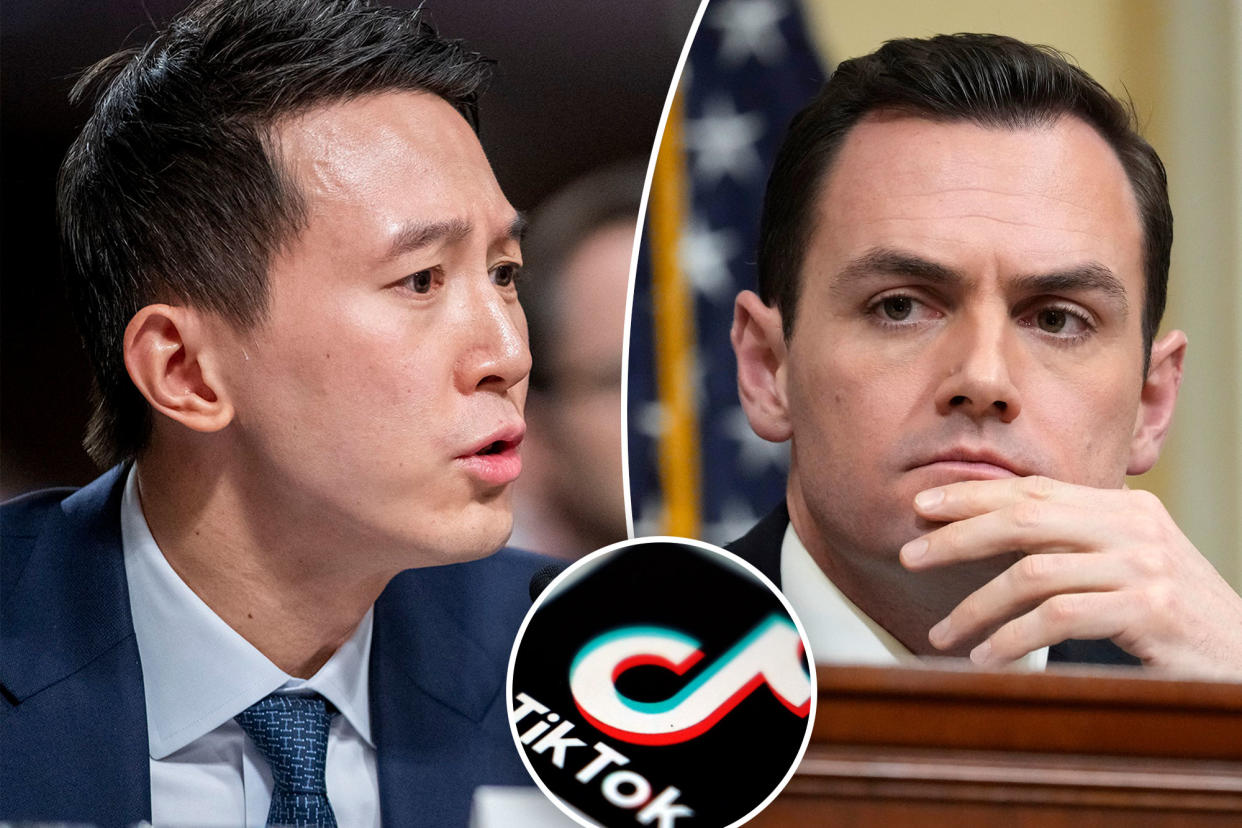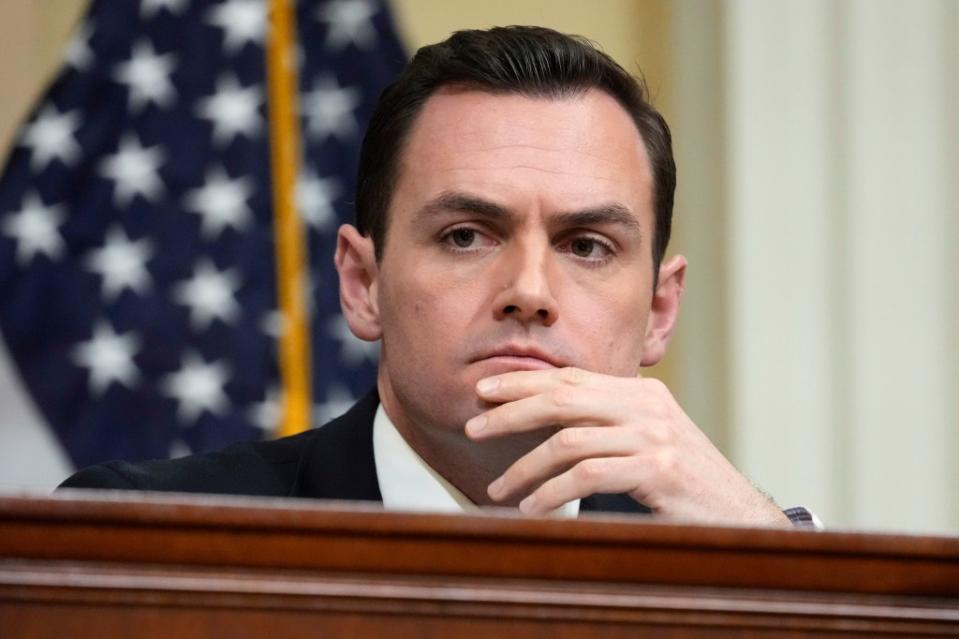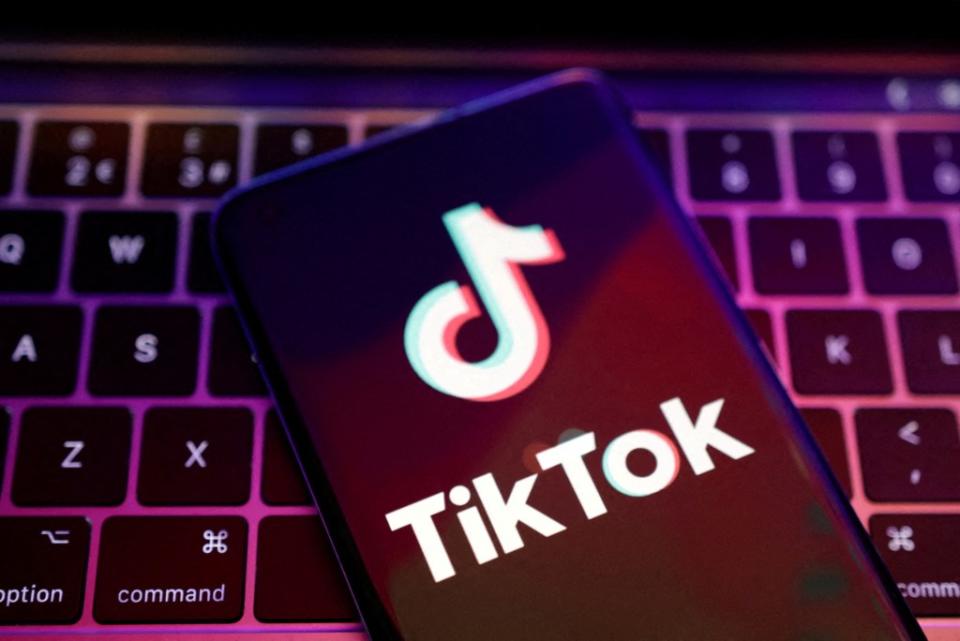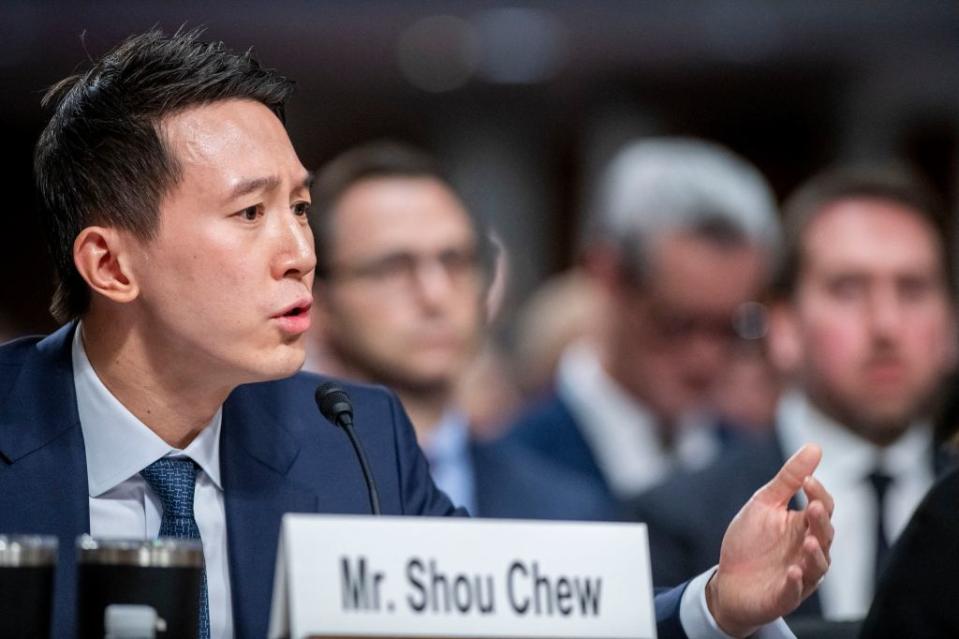Potential TikTok sale has Wall Street buzzing as incendiary House bill gains support

Wall Street is buzzing about a TikTok sale as Congress fast-tracks a bombshell bill that would require its China-based owner to unload it – but tech insiders say such a deal faces stiff hurdles, and that the video app’s users should brace for a possible shutdown instead.
Chatter surged last week that bankers were already scrambling to put together bids for the wildly popular video app after a House committee on Thursday voted 50-0 to pass a bill that would force Beijing-based Bytedance to sell TikTok within six months or face an outright ban in the US.
On Friday, President Biden made a surprise pledge to sign the bill – which is set for a floor vote in the House as soon as this week and enjoys broad bipartisan support among US lawmakers who fear the app is a destructive propaganda and spying tool for the Chinese Communist Party.

However, any prospective buyer would face static not only from US antitrust regulators but also the CCP, which has vowed to block any forced sale. TikTok — whose CEO Shou Chew came under intense grilling by Congress earlier this year — has been directly urging its users to call their local representative in protest.
TikTok’s massive audience of some 170 million American consumers is an enticing prize for the handful of Big Tech firms with the resources to buy it, experts told The Post.
Angelo Zino, a tech industry analyst at CFRA Research, said “almost any large-cap tech company out there with business in the ad market would have interest” given the potential long-term boost to their bottom line.
Still, an acquisition by Microsoft, Meta, Apple or Google would raise major antitrust concerns, while smaller firms like Snap lack the resources to pull off a deal.
Software giant Oracle – which came close to buying TikTok until a previous push to ban the app was shelved in 2021 – was among the firms floated as a logical suitor.
“Oracle is certainly a likely buyer,” said one tech executive who requested anonymity to discuss the situation. The executive noted Oracle is currently storing the data of US users as part of TikTok’s “Project Texas” initiative.
“They are already partnered with TikTok,” the executive added. “They are a natural buyer if they want to buy it, but I’m not sure if they still want to buy it or how much it would cost.”
A dark-horse contender could be Bobby Kotick. The former Activision CEO has approached ByteDance Executive Chair Zhang Yiming to express interest, according to the Wall Street Journal, which cited a person familiar with the situation.
Kotick discussed the possible acquisition while seated with OpenAI CEO Sam Altman during a dinner at an Allen & Co. conference last week, sources told the outlet. The ChatGPT maker could use TikTok to help train its AI models if a partner such as Kotick could raise the massive capital needed to pull off any deal.
The TikTok of today is much larger and more lucrative than it was when Oracle nearly sealed the deal last time, with operating profits reportedly topping $20 billion in 2022.
“At a Meta multiple, that’s $160 billion dollars,” the tech executive added. “Who’s going to buy a $160 billion company? That’s hard.”

One media banker said he would be “shocked” if TikTok got sold because the “size of the deal is too tricky.”
China’s Commerce Ministry said last year it would have to approve the divestiture of TikTok from Chinese parent company ByteDance — and that it’s strongly opposed to any sale.
In 2020, China passed a sweeping law requiring its tech companies to obtain an export license for artificial intelligence-related technology – something that Beijing would be highly unlikely to grant for a TikTok sale, according to sources close to the company.
Indeed, the CCP would view any attempt by the US government to force its hand as a “huge besmirchment of their honor and integrity as a sovereign nation,” according to the tech executive.
The insider added that Beijing would rather see TikTok shut down in the US than sell it under duress — even if it could bag $160 billion in the process.
“China is like, who gives a s—t,” the executive said.

Even if it were inclined to sell, TikTok believes the bill’s six-month timeline would make it nearly impossible to achieve a sale soon enough to avoid the ban provision, a source familiar with the company’s thinking said.
“This legislation has a predetermined outcome: a total ban of TikTok in the United States,” TikTok spokesperson Alex Haurek said in a statement. “The government is attempting to strip 170 million Americans of their Constitutional right to free expression. This will damage millions of businesses, deny artists an audience, and destroy the livelihoods of countless creators across the country.”
It’s also unclear what a potential divestiture of TikTok from ByteDance would mean for TikTok’s operations in other countries and for the ability of US users to connect to international audiences — or whether ByteDance would have to divest TikTok in other countries like the UK or New Zealand or hold onto those assets.
Another potential obstacle lurks in the outcome of the 2024 election.
Presumptive Republican nominee Donald Trump – whose attempt to ban TikTok in 2020 was blocked in federal court – shocked the GOP’s China hawks by signaling last week he is opposed to the bill. Trump said “Facebook and Zuckerschmuck will double their business” if a TikTok ban is enacted.

